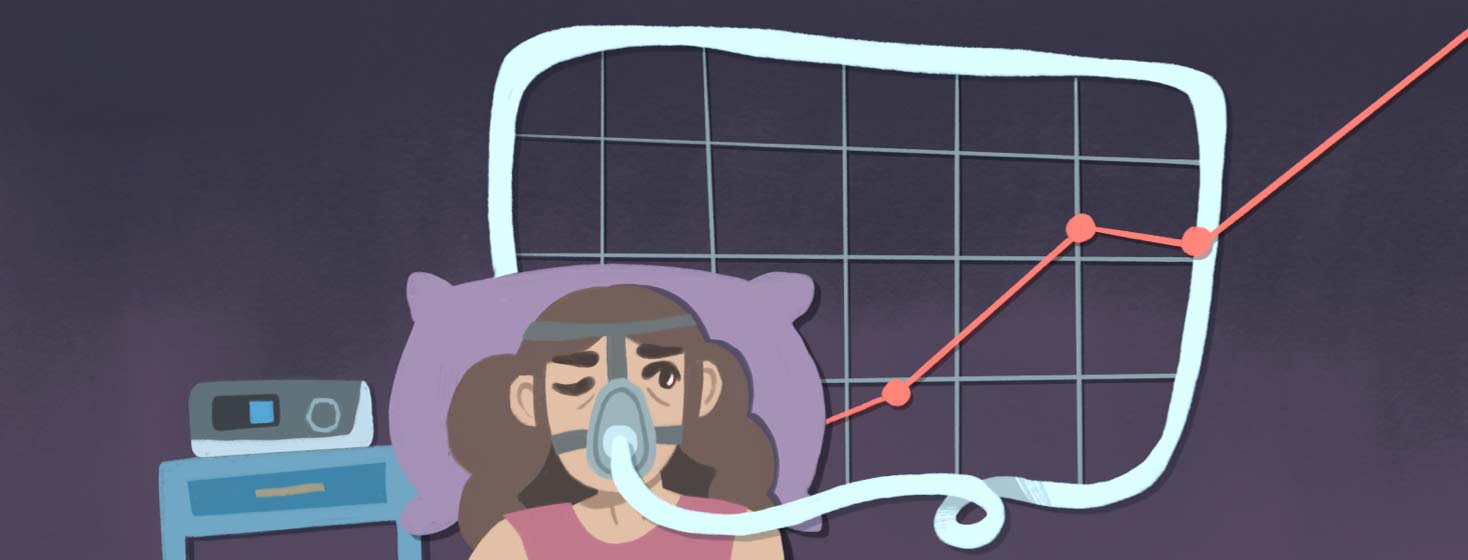Getting a Sleep Study Retest for CPAP: Congrats! It’s Worse.
I don’t know about you, but I don’t miss the sleep lab. Three nights lying in faux hotel rooms: some homier, some creepier than others. Recently, I had to sleep retest in order to get a new prescription (Rx) for a new continuous positive airway pressure (CPAP) machine because mine was malfunctioning. Would I have another diagnosis or new prescription after getting a sleep study retest for CPAP?
Sleep retest for new CPAP
Fortunately, I could do it at home this time. And it was so much more comfortable sleeping in my own bed, without a stranger watching me. But it was still a challenge to fall asleep at times because I had a lot on my mind.
The CPAP machine has been a life-changer for me. I know there are really irritating things about using it. But the thought of living without it really scared me. I was worried – wait for it – that my condition wouldn’t be severe enough to get that new Rx, and I’d have to give my CPAP up.
Why? When I was originally diagnosed several years ago, my AHI number wasn’t all that high.
Worry about my AHI
Quick refresher or explanation if you’re new here: AHI stands for apnea-hypopnea index. It represents the number of apneas or hypopneas (instances of not breathing) recorded during the study per hour of sleep. Health care providers rate the severity of your obstructive sleep apnea (OSA) based on this:
- None/Minimal: < 5 AHIs per hour
- Mild: 5-14 AHIs per hour
- Moderate: 15-29 per hour
- Severe: 30 or more per hour
Without sharing exact details – my original AHI was in the mild range. I had other issues, though, such as low blood oxygen concentration and impacted REM sleep. Both were concerning enough to secure a diagnosis and prescription (Rx) for treatment – and insurance coverage.
What if insurance denied me
With insurers ratcheting back benefits and building in barriers, I was worried this time I might be denied. (Spoiler alert: It was, but not for the reason I expected.)
Well, I needn’t have worried: A voicemail from my ENT’s office instructed me to call them right way for my results. My OSA is no longer “mild.” My AHI is now more than 30.
“Congratulations, Lisa,” I told myself. “Be careful what you wish for: Your OSA is officially severe. You certainly qualify for CPAP therapy coverage now!”
New worries: aging
I immediately stopped worrying about getting a new machine and started worrying about what this change meant to my health. My ENT told me that this evolution wasn’t because of anything I did other than get older: Once women hit menopause, he said, they catch up with men in terms of likelihood and severity of OSA.
Just the kind of equality I don’t need.
Doctor's advice: Stick with CPAP
My doctor reassured me, however, that CPAP therapy is working for me – and I tolerate it well. I really just need to stay the course. I asked about surgical interventions such as the Inspire OSA treatment, which he does perform on some patients. But he said he recommends Inspire for patients who absolutely can’t tolerate CPAP therapy enough to see the benefits. Plus, every surgery has risks.
So, if the CPAP therapy “ain’t broke, don’t change it.” I agree.
Of course, this all started because I have a CPAP machine that IS “broken” – time to change THAT. I left the office with an electronic Rx on its way to a local supplier, and renewed energy to stay on top of healthy lifestyle habits.
Unlike my advancing age, those are at least something I can affect.
Tell us about your experience getting a sleep study retest for CPAP. Did your diagnosis change the following the retest? Please share a comment below.

Join the conversation